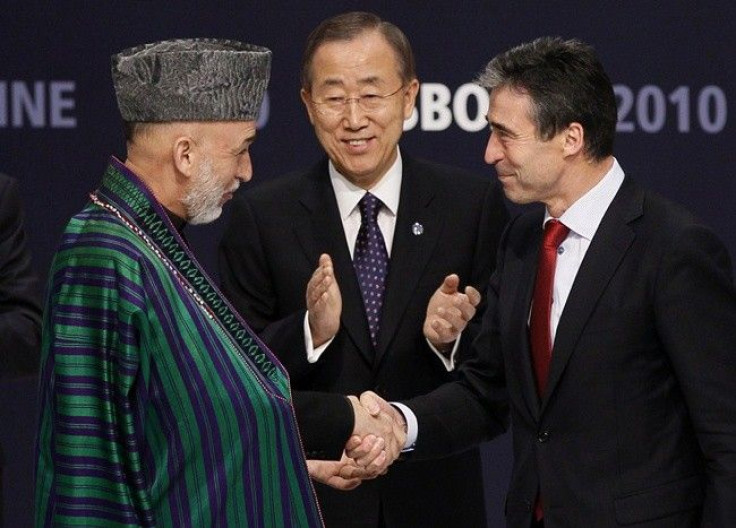War to shift to Afghan control by 2014

The coalition of nations waging war against al-Qaeda and the Taliban in Afghanistan declared their intention, dependent on actual conditions on the ground, to hand over full responsibility for combat in the nation by 2014.
Nations would begin to transition responsibility for the effort to Afghanistan in early 2011, countries led by NATO said Saturday.
The declaration, which also comes with a long-term commitment to help Afghanistan achieve that goal, took place at a summit of member states belonging to the North Atlantic Treaty Organization, which concluded its two-day meeting in Portugal on Saturday. In attendance in Lisbon was Afghan President Hamid Karzai.
[The coalition] and the Government of Afghanistan are entering a new phase of our joint effort, which allows us to ... help set the conditions for irreversible transition to full Afghan security responsibility and leadership, the nations comprising the NATO-led International Security Assistance Force (ISAF) in Afghanistan declared.
Conferences in London and Kabul earlier this year where paved the way for Saturday's declaration.
Transition will be conditions-based, not calendar-driven and will not equate to withdrawal of ISAF-troops, the declaration stated.
Several coalition nations have already withdrawn from the country. The United States, which has by far the most troops in Afghanistan, has boosted the number of troops participating over the last year as part of a surge strategy.
ISAF nations said they would continue to help meet critical security, training and mentoring requirements for Afghanistan, shifting from a combat role to a support role.
Currently, there are more than 130,000 troops from 48 nations in Afghanistan. Afghan National Security forces are expected to reach around 300,000 by the end of 2011, according to the declaration.
The nations said that in helping Afghanistan, they support the nation's efforts to reconcile and reintegrate members of the insurgency who renounce violence, cut links with terrorist groups, and accept the Afghan constitution.
They also stress the importance of Afghanistan to support constitutional and international obligations on human rights, especially those of women.
The nations commended Afghanistan progress in improving its national and sub-national governance.
However corruption remains a central challenge to be addressed, they said.
© Copyright IBTimes 2024. All rights reserved.











